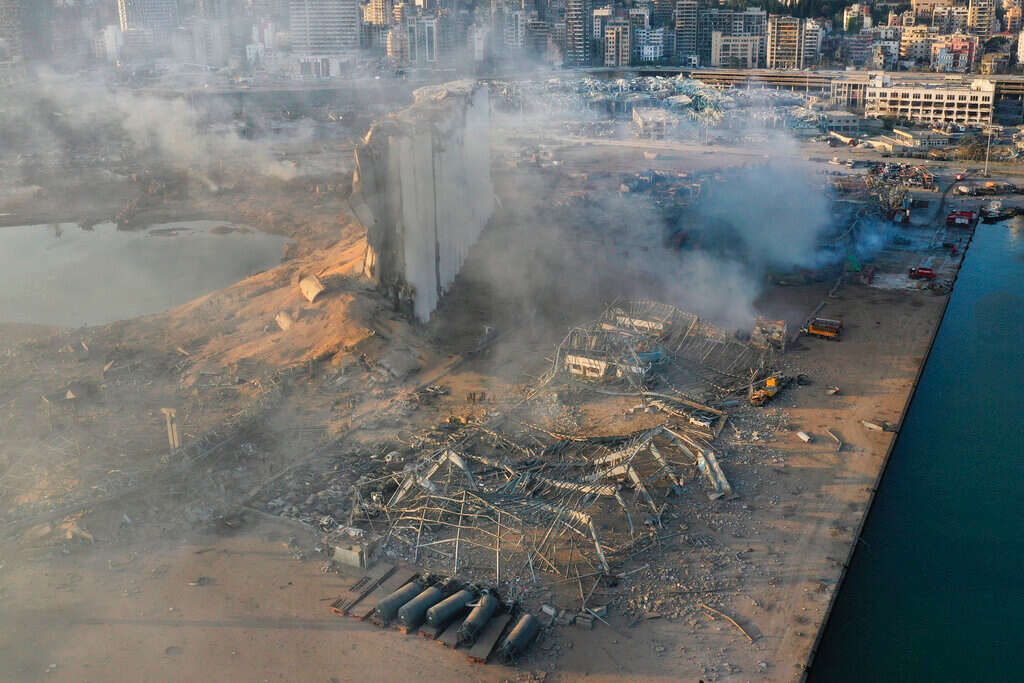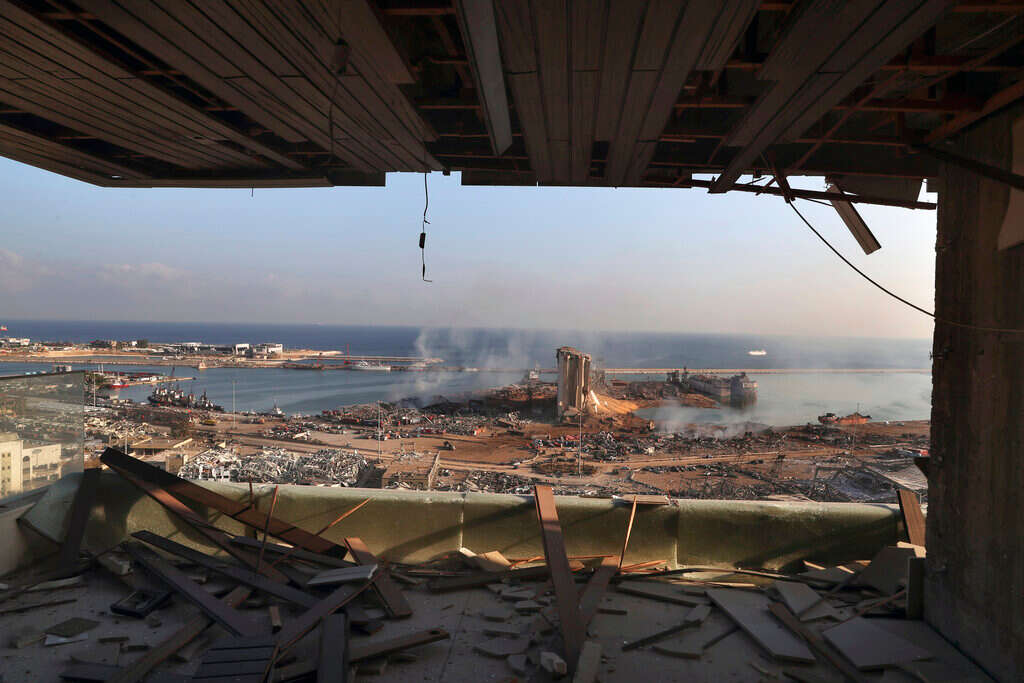Israel is reportedly in an advanced stage of negotiations with a United Nations proxy regarding supplying Lebanon with specific equipment following the catastrophic explosion in Beirut, Kan 11 News reported Wednesday.
The blast decimated the Port of Beirut, killing at least 135 people and leaving over 5,000 others injured.
Israel reached out to its northern neighbor immediately and offered any help necessary. Israeli officials urged Lebanon to set aside the animosity between the two countries at a time when easing human suffering should be placed above all else, but have also expressed concern that Hezbollah, the Iranian-backed Shiite terrorist group that wields enormous political power in Lebanon, would sooner see Lebanese people suffer than accept Israeli aid.
Follow Israel Hayom on Facebook and Twitter
According to Kan, Israeli officials have been working closely with the UN to transfer the much-needed equipment to Lebanon via UN agencies, although Beirut's government has yet to officially respond.
Dr. Salman Zarka, director of the Ziv Medical Center in Safed, where patients from Lebanon and Syria are often treated, expressed skepticism that Hezbollah would permit Lebanese civilians to receive medical treatment in Israel, and pleaded for humanitarian concerns to take precedence.
"I really hope that Nasrallah will allow us to save lives," he told Kan.
Professor Anthony Luder, who heads the Pediatrics Department at Ziv, issued an emotional plea to the Lebanese government, saying: "Please, please, put politics aside and accept the help we can offer."
Lebanese Prime Minister Hassan Diab has appealed for international aid, saying his country "is witnessing a real catastrophe."
World countries pledge aid of various kind to Beirut and efforts to send funds and recovery measures are said to be expedited worldwide.

The UK has pledged a $6.6 million aid package, including search and rescue help and expert medical support. Cyprus dispatched two helicopters, 10 rescuers, and eight rescue dogs to Beirut, and the Cypriot Foreign Ministry said Nicosia had chartered a plane to deliver medical supplies and repatriate any Cypriots who wanted to leave Beirut. About 50 have already accepted the offer.
The Czech Republic sent a 36-man search and rescue team; Denmark has earmarked 12 million Danish crowns ($1.91 million) toward relief work, including hospitals in need of medical equipment as well as securing food, water and shelter; Egypt sent two planes with medical supplies; and France sent 55 security personnel, 6 ton of health equipment and 10 emergency physicians.
President Emmanuel Macron will fly on Thursday to Beirut, where he will meet with political figures.
Germany said it will send a 47-strong rescue team and has pledged €1 million ($1.2 million) in immediate aid via the German Red Cross to establish first aid stations in Beirut and provide medical equipment.

Greece dispatched a team of 12 personnel, a rescue dog and two special purpose vehicles; Budapest is providing €1 million of humanitarian aid to help with life-saving efforts and reconstruction, to be provided to the charitable arm of the Maronite Church in Lebanon; Italy sent two air force planes with eight tons of medical equipment and a team of experts; the Netherlands sent a 67-person search and rescue team; Norway – 40 tons of medical equipment and 25 million Norwegian crowns ($2.8 million) in financial help; and Poland sent 39 rescuers and four dogs.
Russia pledged five planes carrying medical equipment, a field hospital and medical personnel. All medical staff traveling to Beirut will be equipped with personal protective gear in light of the coronavirus pandemic.
Tunisia has committed two planes carrying food and medical aid. President Kais Saied said his country could treat up to 100 of the casualties in its hospitals.
The Arab world rallied to Lebanon's aid as well.
Turkey's Humanitarian Relief Foundation said it is helping in the search for survivors, digging through debris to look for people and recover bodies. The group has also mobilized a kitchen at a Palestinian refugee camp to deliver food to those in need, said Mustafa Ozbek, an Istanbul-based IHH official.
Qatar dispatched the first of four planned flights on Wednesday with medical aid, and will deliver two field hospitals of 500 beds each, equipped with respirators and other necessary medical supplies.
Iraq sent Lebanon a plane with emergency medical aid; Kuwait has delivered medical aid and other essentials; the United Arab Emirates have sent medical supplies; and Iran has sent nine tons of food, as well as medicine, medical equipment, medical personnel and a field hospital to Lebanon, according to Iranian media.
The European Union activated its natural disasters relief program, sending over 100 firefighters with vehicles, dogs and equipment for search and rescue operations.
Subscribe to Israel Hayom's daily newsletter and never miss our top stories!
The EU also activated its Copernicus satellite mapping system to help assess the damage.
The World Health Organization and the International Federation of Red Cross and Red Crescent Societies have sent medical supplies, including personal protective equipment, medicine and surgical equipment.




